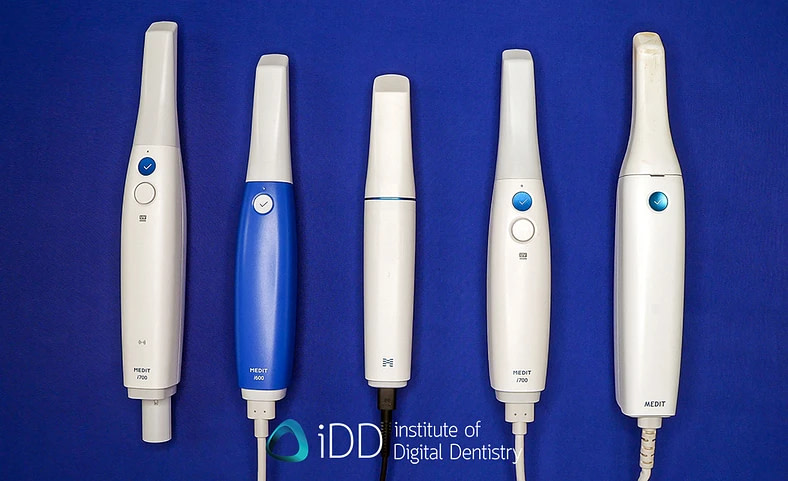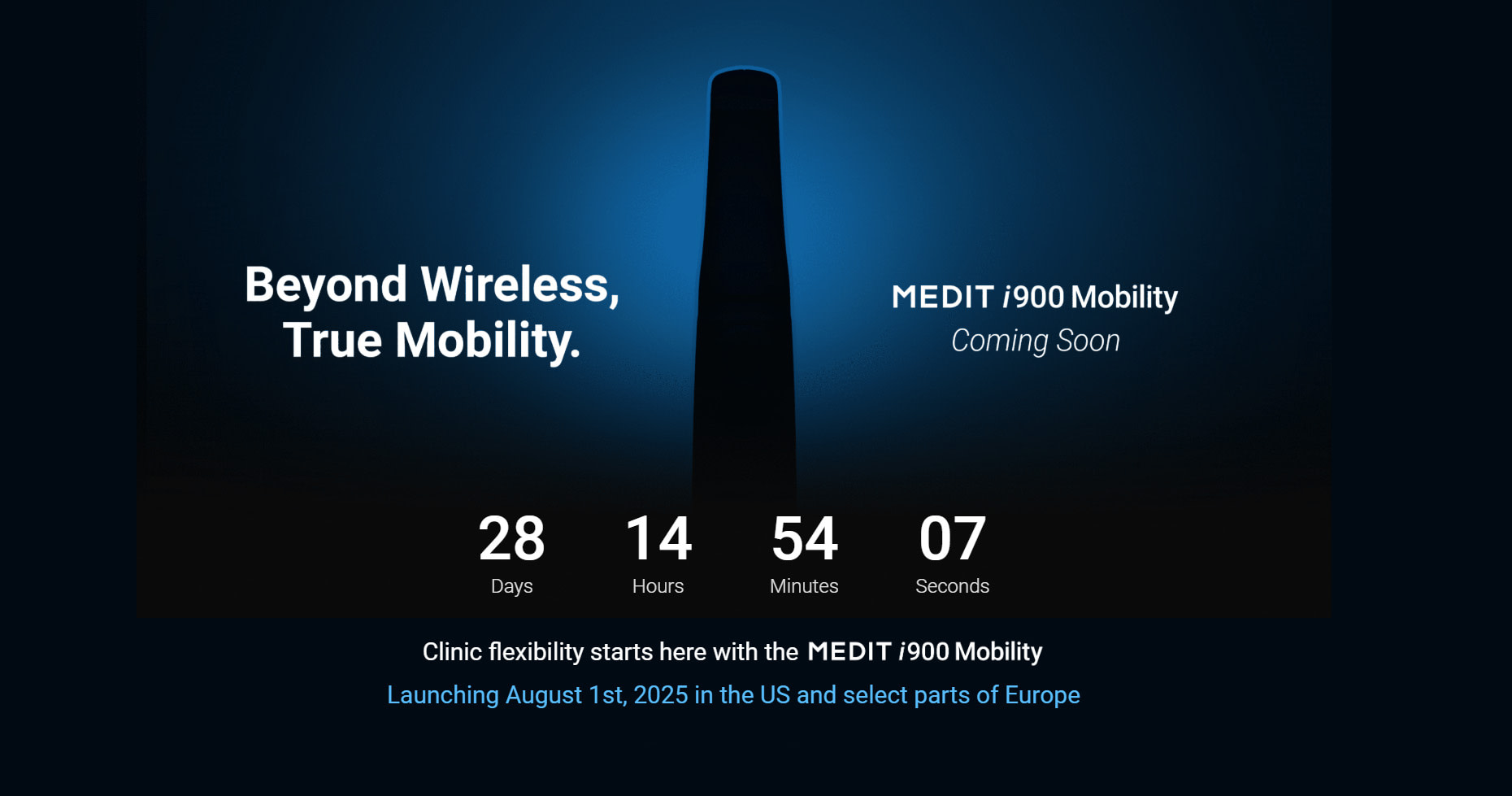Hey iDD community, exciting news from Medit! The Korean digital dentistry giant just announced their latest intraoral scanner, the Medit i900 Mobility, launching in less than a month. But before we get swept up in the marketing hype, let's dive into what this actually means.
Launch Date: August 1st, 2025 in the US and select parts of Europe
The i900 Evolution Story
To understand where Medit is heading, we need to look at their recent i900 journey. The original i900 launched as a solid, lightweight scanner at just 165 grams with impressive scanning capabilities. Then came the i900 Classic earlier this year at IDS, which brought back the traditional physical scan button for those who found the touch interface... well, let's just say not everyone loved it.
Now we're getting the i900 Mobility, and Medit is positioning this with the bold slogan "Beyond Wireless, True Mobility." The company claims it's designed for workflows that span multi-chair clinics, chairside procedures, and mobile care environments.
But here's the thing - we've heard "revolutionary" wireless claims before. So what exactly does "beyond wireless" mean? That's the million-dollar question we're all asking.
For one, it is most likely a wirless i900 that is coming. But what else?
Beyond Wireless: Marketing Speak or Real Innovation?
Wireless scanners still mostly require a connection to a computer within a certain range, typically through a device like a TP-Link. They're untethered from cables, but they're not truly independent. Even the i700 Wireless needs to maintain a connection with its wireless unit.
The exception has been TRIOS scanners using WiFi networks with TRIOS Share.
So when Medit says "Beyond Wireless, True Mobility," are they talking about a wireless i900 that is some kind of standalone device that can function completely independently without a wireless dongle?
The Critical Questions We Need Answered
As someone who regularly uses Medit scanners in practice, I'm optimistic but have some questions:
Wireless tech: How will the battery life on this i900 be and how much bigger will it be compared to the original i900.
Software Integration: Will this work seamlessly with existing software? Medit's software is still one of the best in the industry.
Price Point: This is the big one. Medit's strength has been delivering excellent value. Will they price this higher than the i900 classic or reduce the current prices?

The Timing Question
The timing of this announcement is interesting. We're seeing increased competition in the wireless scanner space with devices like the TRIOS 6, Alliedstar Sensa, and others pushing wireless capabilities. Medit needs to offer something genuinely differentiated to stand out.
But given Medit's track record of delivering solid, practical solutions, I'm hoping this isn't just marketing spin. They've consistently avoided the hype-driven approach of some competitors and focused on real-world clinical value.
The Bottom Line
We're taking the "revolutionary" claims with a healthy dose of skepticism until we see real specifications. That said, if Medit can genuinely solve mobility challenges without sacrificing scanning quality or adding excessive cost, this could be genuinely useful for certain practice types.
With the launch less than a month away, we should have concrete details soon. You can register for updates here if you want to stay in the loop.
What do you think? Is true portability something your practice would actually benefit from, or is this solving a problem that doesn't exist for most dentists?
Have you found limitations with current wireless scanners that genuine mobility might solve? Let us know in the comments below - we're curious about your experiences with mobile scanning needs!


The Primescan 2 is also dongle free. Now scanning speed and DS Core is a different headache entirely…
Very true. Will be interesting to see how DS Core develops over time.